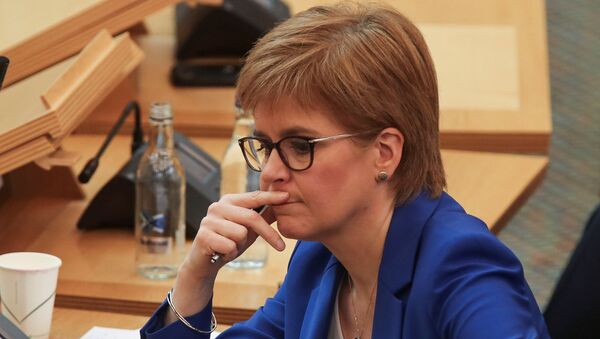First Minister of Scotland, Nicola Sturgeon, says she will feel a "sense of relief" after giving evidence to an inquiry into her government's handling of complaints against her predecessor, Alex Salmond, who, following a High Court case, was cleared of all criminal charges related to sexual assault accusations in March.
"It's been personally difficult," the Scottish leader said, while speaking to Times Radio on Friday."Imagine how it would feel, for any reason and whatever the circumstances, if somebody that has been one of the biggest presences in your life...and then they're not in that role anymore. And it's difficult".
She said that earlier she had been unable to talk openly about the situation due to the criminal trial and since then being "immersed" in the coronavirus pandemic.
"I will get the opportunity to talk about that in the parliamentary inquiries that are to come", she said.
She said that she would not "relish" the prospect but there would "to some extent be a sense of relief at just being able to have my say and put my side across and then let people make up their own minds".
The parliamentary inquiry was established in January 2019 following the Scottish government admitting that the internal investigation of sexual misconduct complaints against Salmond was unlawful, subsequently paying £500,000 in expenses to the SNP's former leader.
Inquiries were put on hold when criminal charges were leveled against Salmond. Following his acquittal earlier in 2020, a panel of nine MSPs - 4 SNP, 2 Conservatives, and 1 each from Labour, the Greens and the Lib Dems - held a public meeting for the first time in June.
Sturgeon previously told MSPs that she had no role in the process and "acted appropriately and in good faith". She also described it as not unlike "a grieving process".
This was prior to admitting that she had personally signed off on the complaint-handling process.
Beginning in 2013, Salmond had a series of sexual assault complaints leveled against him by several women.
A Scottish Parliament inquiry will now commence, which will see senior figures, including the current first minister, give evidence.


